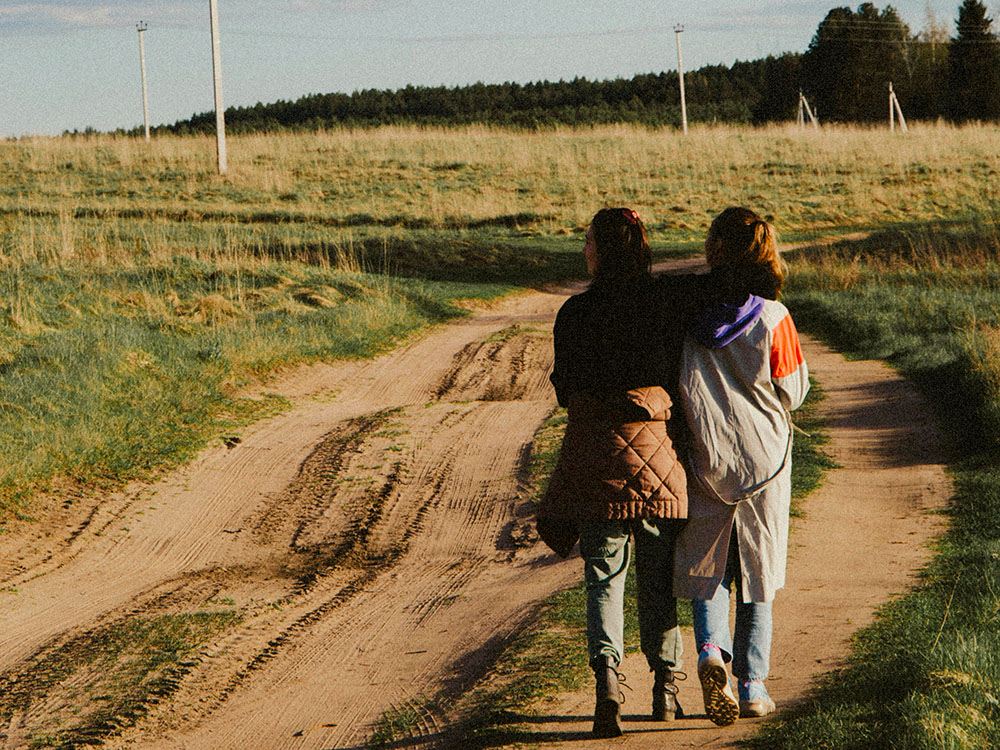
(Unsplash/Klara Kulikova)
Recently, my younger sister was bid farewell by a large crowd of family, friends and colleagues before she moved interstate to take up a new and exciting position. The appointment was a feather in her already well-feathered cap and the vibe at the informal gathering was one of warmth, optimism and shared joy.
At the end of the evening, it was just my sisters, their husbands and my sister's three closest friends from school days, some 40 years earlier. We all chatted easily and enjoyed a last drink. There was lots of laughter, silliness and optimism. Clever names for Instagram groups chronicling this new chapter and suggestions for suitable wardrobe options were shared.
The members of "the gang of four" had chosen different paths. Some had married and had children, and they kept in touch through it all. None had ventured too far from their original suburbs or towns, but now my redoubtable sister was taking off, in more ways than one!
I was so proud of her.
On reflection, I was also proud of the many, many connections she had made and maintained. I overheard her saying that the gang of four may only get together once a year, but it didn't matter, because the connections are deep, and rooted and robust. They can pick up where they last left off — a cliché, true, but clichés are bearers of truth.
The Taylor Swift juggernaut — in full flight as I type ‒ has led to a global revival of the humble friendship bracelet. In fact, my local library is hosting a friendship bracelet workshop! The gang of four doesn't require bracelets, just cherished memories, devices, laughter and an occasional cocktail.
Advertisement
One way of expressing their bond would simply be to say, "They get each other."
And what a gift it is to have someone — even if it's only one — who really gets you!
Toni Morrison describes such a person in Beloved:
She is a friend of my mind. She gather me, man. The pieces I am, she gather them and give them back to me in all the right order.
I've been reflecting on the gift of friendship as I navigated choppy seas over a period of months. The trauma was not mine, but sometimes it's harder to watch someone you love struggle than to experience it yourself.
And how curious is it that the older (and wiser?) one becomes, the more one knows that some stories and struggles are for one friend and not another.
We don't always want to be challenged, corrected (even gently), reminded of mitigating circumstances or simply contradicted. Sometimes we just want — need — to be listened to without equivocation, or judgement, or an air of superiority — even if the listener's entitled to superiority.
I am not a Facebook person (do we call it something else now?), so I am no one's Facebook friend, and I have no evidence for what follows, but I can't help wondering if one of the reasons for Facebook's popularity is that time-poor people yearn for connection, for validation, for response — often from similarly time-poor people.
Facebook, it seems to me, provides that in abundance — but you can't tell me it's any substitute for face to face, or even voice to voice, encounter. However, if it works for you, go for it!
Thinking of Jesus as a friend who needed friends brings him closer to us all, and offers a new dimension to the one who wants us 'to have life, and have it to the full.'
As a single person, I am blessed to have a number of dear friends who "get me." Two of them are my sisters. I could not navigate the slings and arrows without them, it's that simple.
Jesus was someone who knew slings and arrows well.
He was also an only child — I've never thought about that before — so in my book that makes his close friends even more important. I think we know them: Mary and Martha (maybe Mary's slightly ahead?), Lazarus, most of the disciples on a good day, and of course Mary Magdalene.
Jesus and Mary Magdalene as "besties" has never hit the popular imagination in the way that the notion of a more intimate relationship has, but I think it's much closer to the truth.
Of course Jesus needed people to confide in as he traveled to places both welcoming and hostile.
Of course he needed deep companionship, especially as those who were threatened by him gathered force.
Of course he needed consolers when he mourned his father's death.
And since the Gospels suggest that these friends remained loyal (although there was the disappointment of Gethsemane), I believe we can assume that they were captured not only by the message, but by the man.
I believe that thinking of Jesus as a friend who needed friends brings him closer to us all, and offers a new dimension to the one who wants us "to have life, and have it to the full" (John 10:10).
Who in your life gathers the pieces and gives them back to you in all the right order?







